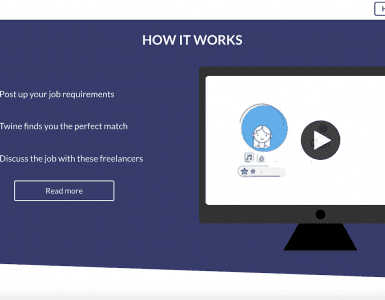Branding’s a hot topic at the moment. Everyone from Neil Patel to Gary Vaynerchuk is saying that it’s the big marketing trend of 2017.
The appeal of branding is really obvious. It’s a long term play which can deliver serious results for your company. Just think about it: when people want to buy sneakers they don’t jump on Google and search for ‘companies that sell sneakers’, they search for Nike or Adidas. If they’ve really smashed branding, you might even search for the sneaker style too. Think about the popularity of Adidas’s Stan Smith trainers – even their microbrands are thriving. Same for almost any product or service. Think of fast food and you’ll think of McDonalds. And when you think of them, you’ll probably think of Big Macs.
Why building your brand is so important
The bottom line is people tend to stick with brands they know, which is why building a trusted brand is so valuable. The crazy thing is that some of the biggest brands have done such an amazing job that research has shown that people respond to their logos more than pictures of members of their own families (although what that says about their personal relationships hasn’t quite been determined…)
The fact that building a solid brand is coming back into fashion is definitely a change in the business world. For a while now, it’s shifted out of focus. Companies – especially startups – have adopted a lean mindset. Marketers are obsessed with quantifiable metrics and lean learning. The question is always “what small thing will deliver the biggest results?” But it’s almost impossible to measure the return on investment with branding, so it’s understandable that we’re cautious about piling resources into it.
But Adwords and the latest digital marketing buzzword just don’t build trust in the way that having a solid, well-thought out brand do. Gary Vaynerchuk’s explanation of why he bought a pair of Nike trainers pretty much sums this up: “I don’t buy these because Nike cookied me and chased me around the internet and I gave up and I bought them. I do it blindly. Because it’s Nike.”
'I don't buy these because Nike cookied me. I do it blindly. Because it's Nike.' Click To Tweet
…and why managing your branding is even more important
Trouble is, branding’s a fragile thing. It can take decades to build but just one night to crumble. All it takes is a big backlash and your credibility’s gone. Or, at the very least you’re going to have to spend lots and lots of money correcting your error. In 2010, GAP shelled out for a new logo only to face a massive internet outcry because it was a bit crap. So what did they do? They changed it back less than week later! Spending even more money in the process.


Okay, if you take the view that all publicity is good publicity then perhaps this isn’t so bad. In fact, some people have argued that big companies have put out crappy logos on purpose as a PR stunt. The companies themselves (obviously) haven’t admitted to this. However, even if it is true, it’s unlikely that every terrible logo design is a PR stunt. Plus it’d be hard to justify spending that much money for bad press.
You could argue that GAP couldn’t have predicted the social media shitstorm they endured. After all, the way companies manage social media has come a long way since 2010. It was all relatively new then. Yet brands continue to make the same mistakes time and time again. Take the life insurance company Metlife. They started off their branding with Snoopy and the other characters from Peanuts. But in October 2016, the company moved away from that towards a blue and green stylized M. The problem with this is that a lot of people have pointed out that their logo looks very similar to the news site Diffen. What should have been a great PR opportunity quickly turned sour.


The point is, you’ve got to nurture your brand. It’s there for your customers, not you. What seems to you to be an exciting rebrand could just freak your customers out. It happened to GAP. It happened to Tropicana. Don’t let it happen to you. Involve your customers in the process, and think before you do. Your brand is valuable and one false step can mean trust disappears overnight.



